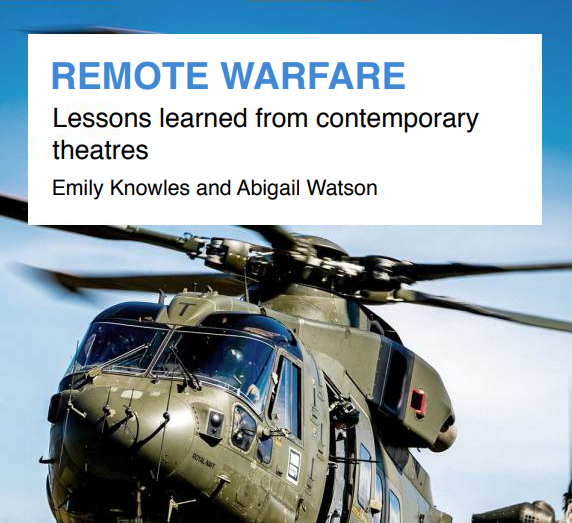New Report Dispels Military Myths About UK’s Remote Warfare

The UK’s way of fighting a war at a distance, including through the use of drones, is generally believed to be effective, cheap, and clean. A new report by the Remote Warfare Programme of the Oxford’s Research Group dispels these and other myths.
The authors of this report, Emily Knowles and Abigail Watson, have based their findings on field research and interviews conducted amongst military personnel. They found that the “overwhelming diagnosis was one of limited commitment, minimum risk appetite, and a triumph of short-term thinking over long-term strategic thought.” The believe that remote warfare can be done effectively, in secret, and without burden for either the local or the domestic population has created strategic incoherence and a discrepancy between the expectations of policy-makers and the reality on the ground.
The report includes several recommendations for British doctrine, including the development of “new approaches to civilian casualty monitoring that improve the ability to conduct post-strike assessments in areas where there are limited or no ground troops”, creating more transparency and dialogue about military engagements, and pushing back against the narrative of clean warfare with zero civilian casualties.
You can find the full report at the Remote Warfare Programme or in our depository.

